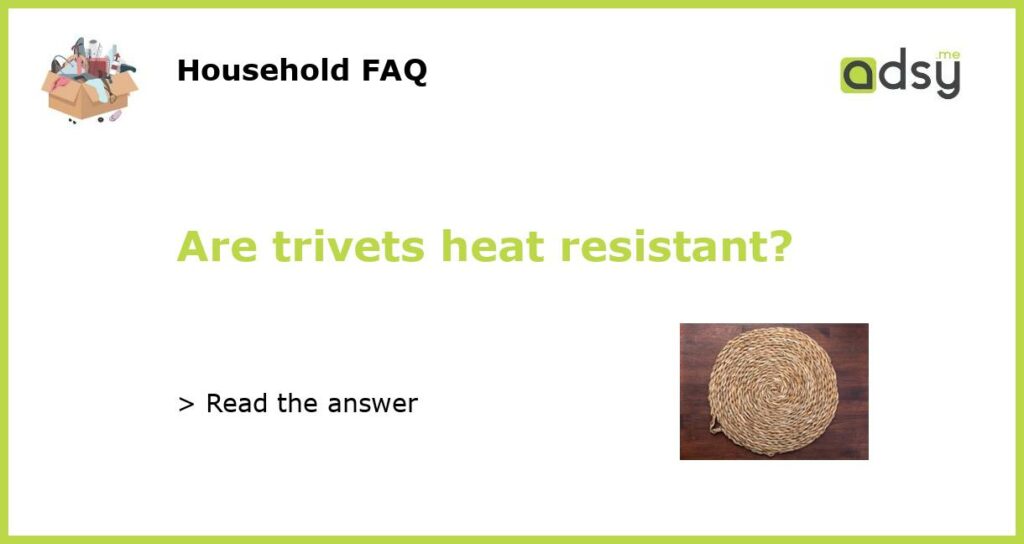Trivets Explained: A Closer Look at Heat Resistance
Trivets are essential kitchen tools that are designed to protect surfaces from heat damage caused by hot pots, pans, and dishes. They come in various shapes, sizes, and materials, but are they actually heat-resistant? Let’s delve deeper into the world of trivets and find out.
Understanding Trivet Materials
Trivets can be made from a wide range of materials such as silicone, cork, wood, metal, and even stone. When it comes to heat resistance, some materials perform better than others. Let’s take a closer look at these popular trivet materials:
Silicone Trivets: Heat Resistance at Its Best
Silicone trivets are known for their exceptional heat resistance. They can withstand high temperatures without melting or warping. Silicone can typically withstand temperatures up to 500°F, making it an excellent choice for protecting your countertops and tables from scorching hot cookware. Additionally, silicone trivets are easy to clean, durable, and come in a variety of vibrant colors.
Cork and Wood Trivets: Natural Heat Resistance
Cork and wood trivets provide natural heat resistance due to their insulating properties. These materials are excellent at preventing heat transfer and protecting surfaces from damage. However, it’s important to note that their heat resistance may vary depending on the thickness and quality of the material. It’s always best to choose thicker and denser cork or wood trivets for optimal heat protection.
Metal and Stone Trivets: Heat Conductors
Metal and stone trivets, such as stainless steel or cast iron, are durable and stylish options that can withstand high temperatures. However, unlike silicone, cork, or wood trivets, they are excellent conductors of heat. While they may not melt or warp under high heat, they can still get hot to the touch and potentially transfer heat to the surface beneath them. To enhance heat resistance, consider opting for metal or stone trivets with additional insulation or raised feet for better airflow and insulation.
Finding Your Heat-Resistant Trivet
Trivets are indeed heat-resistant, but the degree of heat resistance varies depending on the material. If you’re looking for the best heat resistance, silicone trivets are your go-to option. They can withstand high temperatures without succumbing to damage. Cork and wood trivets offer excellent natural heat resistance, while metal and stone trivets provide durability and style. However, it’s important to be mindful of their heat conductivity and take proper precautions to protect your surfaces. With all this information in mind, choose a trivet that suits your aesthetic preferences and offers adequate heat resistance for your specific needs.






